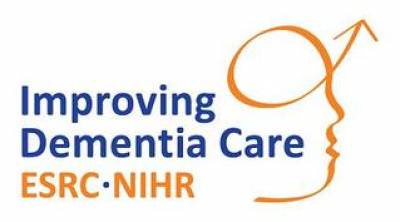MARQUE is comprised of six work streams, all of which are lead by funded posts.
- Stream 1 - Conceptual research of personhood in dementia
-
Lead by Prof. Paul Higgs
- Stream 2 - A naturalistic two-year cohort study of agitation and quality of life in care homes
-
Lead by Dr. Claudia Cooper
A longitudinal, naturalistic study broadly representative of care homes in England exploring agitation and the quality of life of people with dementia. There are currently no exisiting datasets for people with dementia living in care homes that include data on residents, paid carers, family carers and cost including cost and environmental characteristics. These are urgently needed to develop an understanding of their inter-relatedness and effect on people with dementia's quality of life.
- Stream 3 - Cluster Randomised Control Trial to improve agitation for people with dementia in care homes
-
Co-lead by Dr Gill Livingston and Dr. Penny Rapaport
Within stream three we will build upon the findings of MARQUE stream one and two to develop an intervention for people with dementia living in care homes which we will then test it in a cluster randomised controlled trial. The manualised intervention for care home staff will be adapted from START, our manual based HTA-START intervention which effectively and cost-effectively decreased depression in family carers of people with dementia, and based upon a systematic review of non drug treatments for agitation of people with moderate and severe dementia living in care homes. Alongside developing and testing the intervention, we will also develop a strategic approach to altering care home culture as a template for future care home interventions, developing a toolkit including guides to delivery and integration with the final version. The aim is that managing agitation will be a core intervention like meeting nutrition and hygiene needs. Follow up is completed in this stream and is in the analysis stage.
- Stream 4 - Qualitative Study of people with moderate to severe dementia and their family carers living in domestic environments
-
Lead by Juanita Hoe
We will use qualitative interviews with family carers of those with more severe dementia to find out more about the needs of both the person with dementia they care for and their own. This will be used to develop an intervention aimed at reducing agitation in domestic environments.
- Stream 5 - Agitation in people with severe dementia in care homes and hospitals an ethnographic approach
-
Lead by Gerry Leavey
- Stream 6 - Piloting an intervention to improve quality of life of people with dementia in the last 6 months of life
-
Lead by Liz Sampson
This stream brings together two interventions developed by the project team; 1) a manual based interactive face to face training intervention for care homes to improve end of life care and 2) a care-coordination-based intervention from the national Marie Curie End of Life Care Programme (CoMPASS:ion) which takes a whole systems approach to improving care. We will combine these interventions, refining them using data from earlier workstreams of the MARQUE programme, and then test the intervention's acceptability and practicality in care homes. We plan to randomise homes to the intervention and one to control. We will identify the most relevant outcome measures, for example focussing on the quality of care and death rather than just place of death. This will inform a full trial-a future definitive study.
 Close
Close


